How Trump’s Tariffs Could Affect Singapore’s Condo And HDB Prices
April 9, 2025
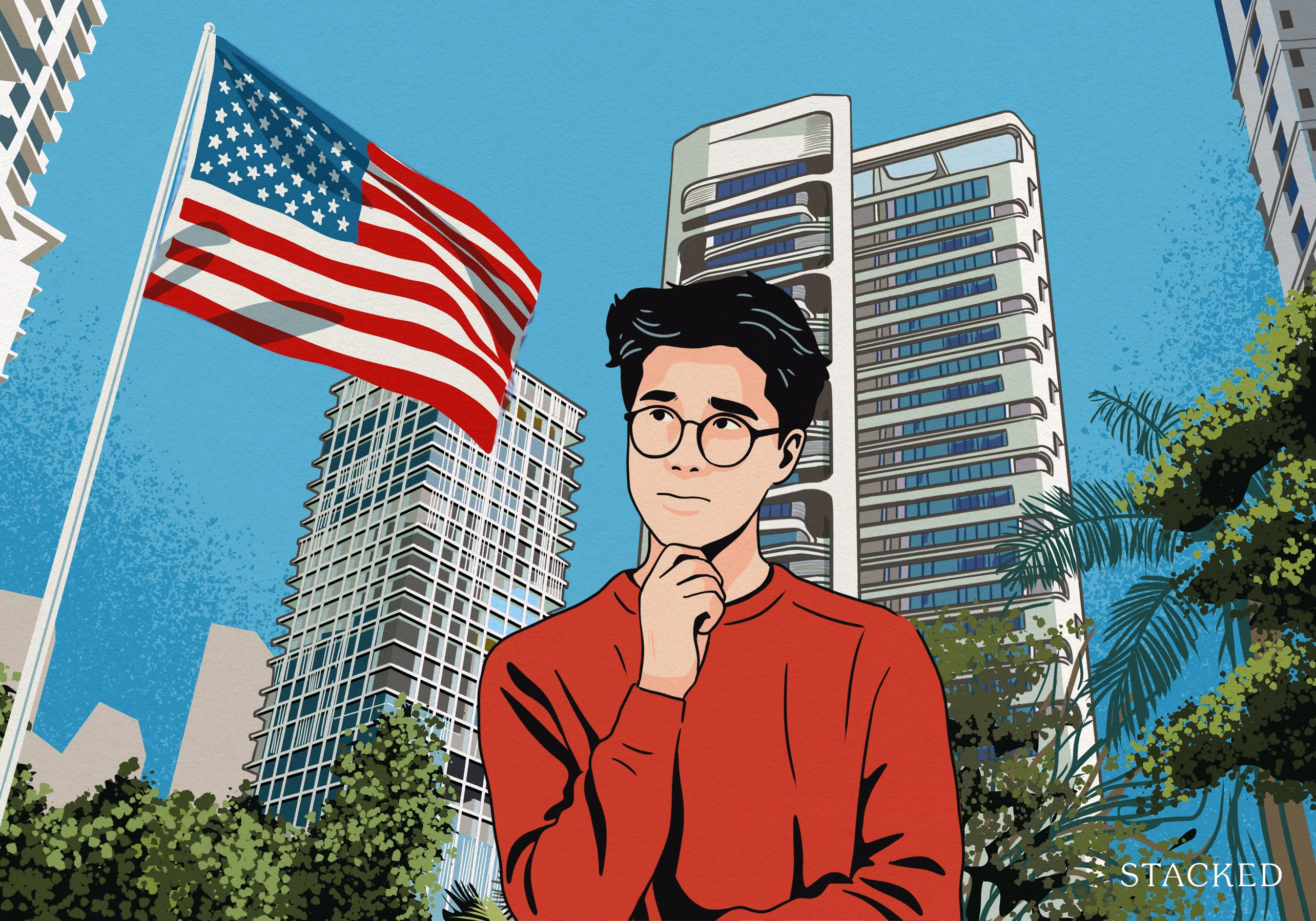
With tariff disruptions in the news right now, it’s unsurprising that there are so many questions about the property market, and how we’re affected by all this. The blunt answer, when it comes to such top-level economic issues, is that we’ll never know for sure – there are so many variables, from materials costs to developers to capital flight – that could change things for the better or worse (quite likely a bit of both). There is, however, a semblance of consensus over some issues on the ground. Here’s what we’re hearing from various industry experts:
1. Potential changes to mortgage interest rates
It’s uncertain right now whether interest rates will go up or down in light of the tariffs. Part of this boils down to how independently the US Federal Reserve will act, in spite of the White House calling for lower rates.
One possible outcome of tariffs is high US inflation, due to factors like cost-push inflation and domestic price hikes. Traditionally, the Fed’s main weapon of combating inflation is to raise the interest rate. This has a knock-on effect on our local SORA rates: while SORA doesn’t necessarily mirror the degree to which rates rise, it does tend to move in general tandem with US interest rates.
(Note: HDB loans, or home loans pegged to internal board rates, are unaffected by SORA’s movements)
If the Fed decides to raise interest rates to combat inflation, then SORA-pegged loans in Singapore will likely rise. This could cause a scramble to refinance into fixed-interest loans – assuming banks even decide to have them – or a switch to longer interest rate periods (e.g., three-month SORA rate loans versus one-month rates).
If the interest rate rises past the average of 3.75 per cent, which is common today, we may also see MAS raise the floor rate used to calculate the Total Debt Servicing Ratio (TDSR). The floor rate is usually set higher than the actual loan rates, to ensure borrowers can accommodate future rate hikes.
The end result, if the Fed does raise rates, is more interest payable by home buyers, higher monthly loan repayments, or greater difficulty in qualifying for home loans. If, on the flip side, the Fed caves to White House requests, then a lower interest rate could mean the opposite. This could go either way right now.
There’s also the issue of MAS allowing the Singapore dollar to dip in strength
MAS is allowing the Singapore dollar to weaken against the US dollar. This is beneficial in light of the tariffs, as it makes Singapore’s exports more attractive. This might result in lower interest rates, depending on how much exactly the Singapore dollar weakens.
While there’s no crystal ball here, a weakened Singapore dollar could result in lower interest rates that make property a bit more attractive.
2. A possible flight to safety, that results in more people buying property
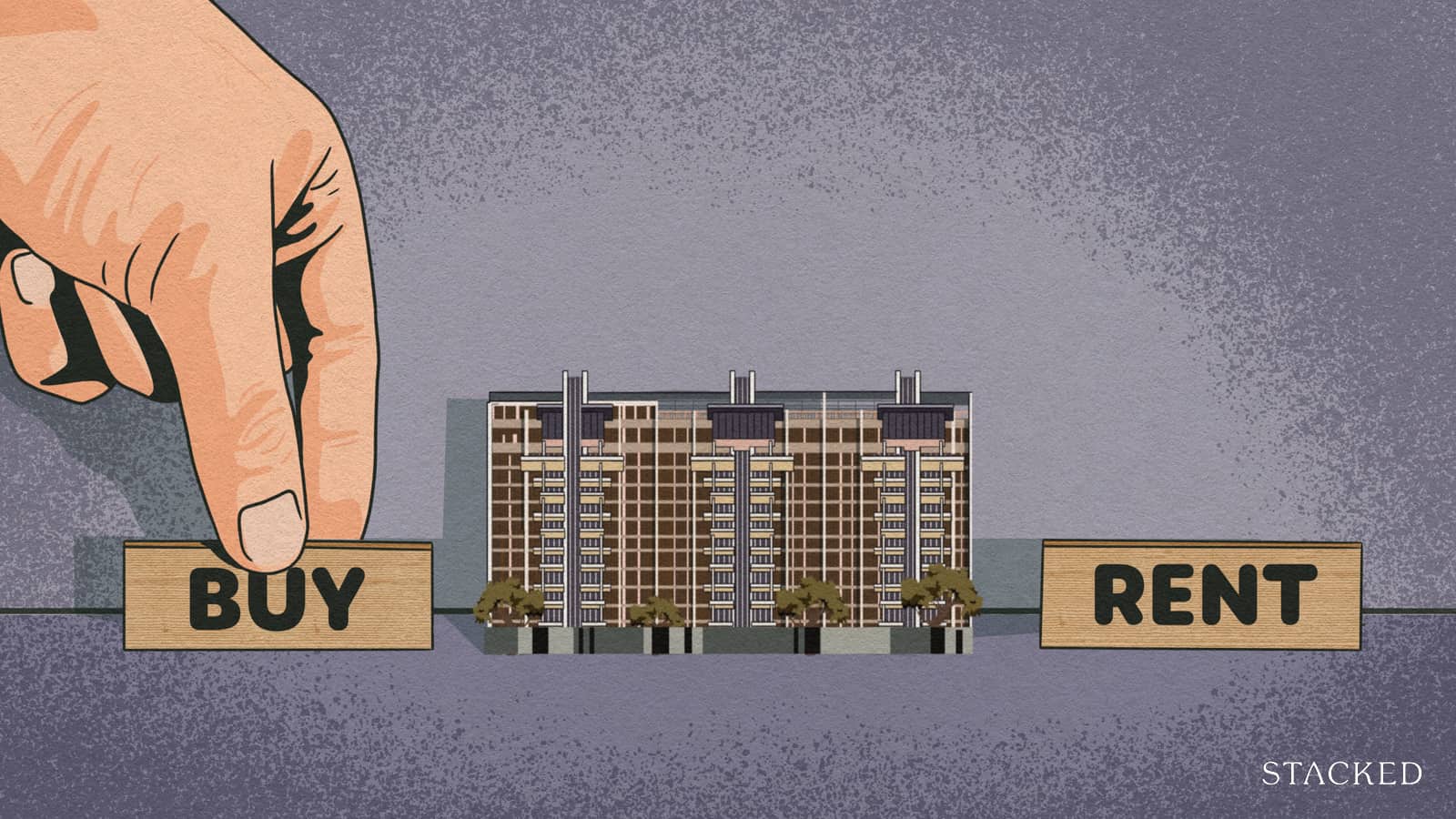
We know what you’re expecting to see here: a bunch of charts showing how property prices rise whenever there’s a crisis. For decades, this has been the spiel of realtors and other property professionals alike; and we certainly did see prices recover sharply and reach new highs, in the aftermath of COVID and the Global Financial Crisis (GFC).
Rather than show you the same chart and rehash the same argument, let’s instead address what’s different:
The huge spike in property prices during COVID was primarily due to a housing shortage, and later the normalisation of Work From Home. For sure, some investors may have fled to real estate when the stock market started falling; but it’s not comparable to the GFC, when there was no housing shortage or global epidemic.
As for the GFC, we need to consider that the 2008 to 2013 property run-up was worlds apart from the market today. Back then, there was no Additional Buyers Stamp Duty (ABSD), no Sellers Stamp Duty (SSD) until 2010, no TDSR (until late 2013), interest rates that could fall below two per cent, etc.
Today, with higher interest rates, stamp duties, and loan curbs, we can’t assume we’ll see a repeat surge in property prices.
No two crises are alike, and we’d probably do ourselves a disservice by oversimplifying things. So on the one hand, yes, there is historical precedent to show that real estate can do well in a crisis, being seen as a safe harbour. On the other hand, we can’t assume a repeat scenario, given the slew of new policy measures that now exist. It’s also worth remembering that, whilst we haven’t seen cooling measures like ABSD rates drop before, the government can choose to lower or remove such measures. This could result in a lot of support or boost buying, if the situation warrants.
More from Stacked
We Ranked The Bottom 10 Singapore Districts By Appreciation (2021)
2021 has been rough on first time home buyers, as well as new investors. With property prices rising across the…
Divergent views on buyers from China
From speaking to realtors, two divergent views on Chinese buyers have emerged. On the one hand, some realtors feel that tariffs – which have landed more heavily on China than on many other countries – could drive some form of capital flight there. Some realtors argue this could see Chinese buyers turning to Singapore real estate; even with the hefty 60 per cent ABSD.
Others feel that, if Chinese buyers turn to Singapore, the ABSD will drive them toward alternative forms of real estate investment. For example, into commercial shophouses, rather than condos or other residential assets.
3. A wait-and-see approach among buyers
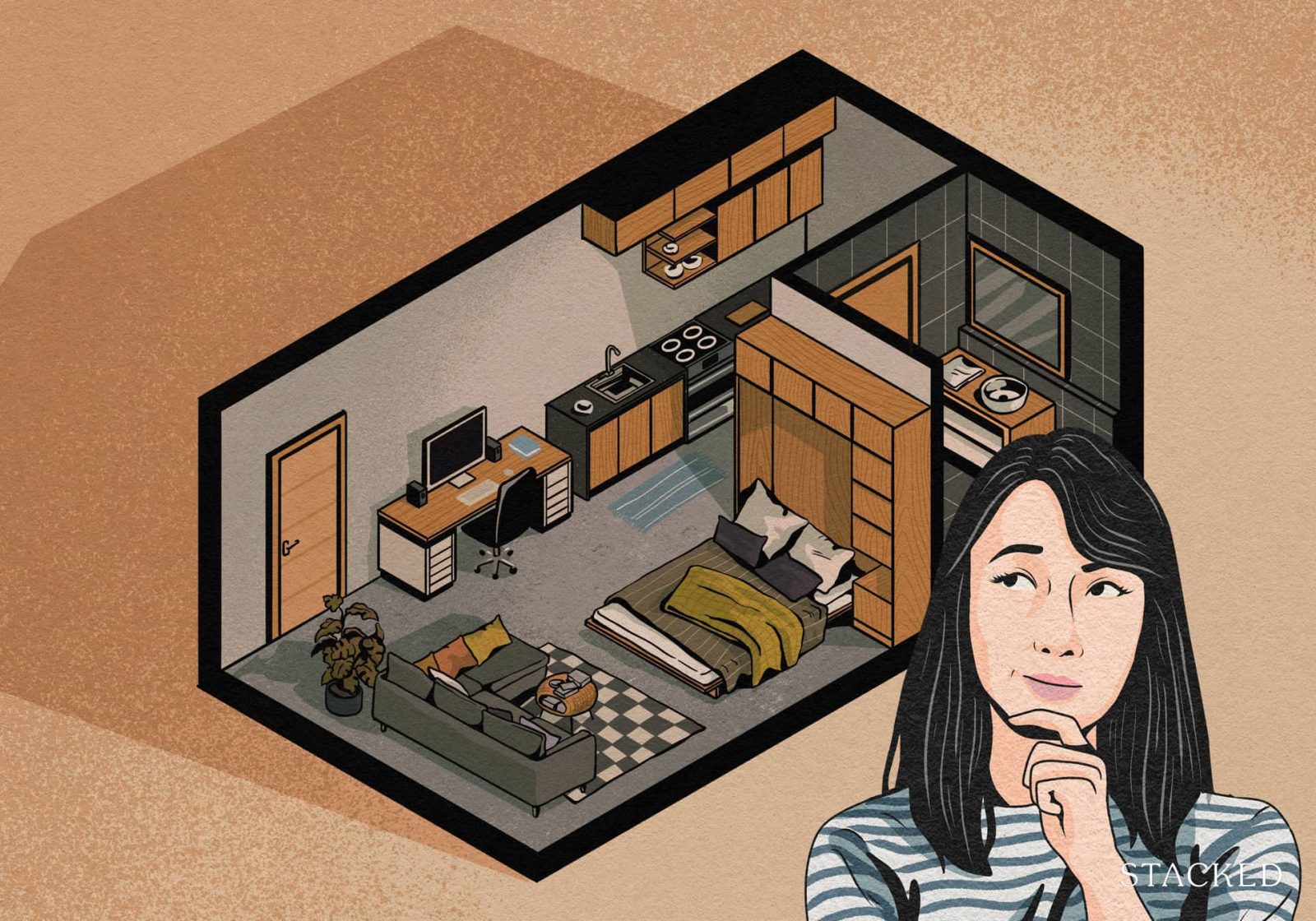
Unfortunately for developers, most realtors agree that a knee-jerk, wait-and-see response among buyers is likely. This happens with any sort of major change, from cooling measures to COVID to the current oncoming trade war.
This may be especially rough in the near-term, as the next wave of new launch condos is predominantly in the CCR. This region has the most expensive properties, so buyers may hold back because:
- They’re worried about the state of the economy and affordability issues, and
- They think other buyers will be worried about it and hold back, so developers may give bigger discounts
To be blunt, it is more probable that they won’t see discounts right now, as the high cost of land in the CCR gives very little room for such things. That reality is besides the point, however, when we factor in buyer psychology.
4. The biggest wild card is how this will affect the cost of construction and property development
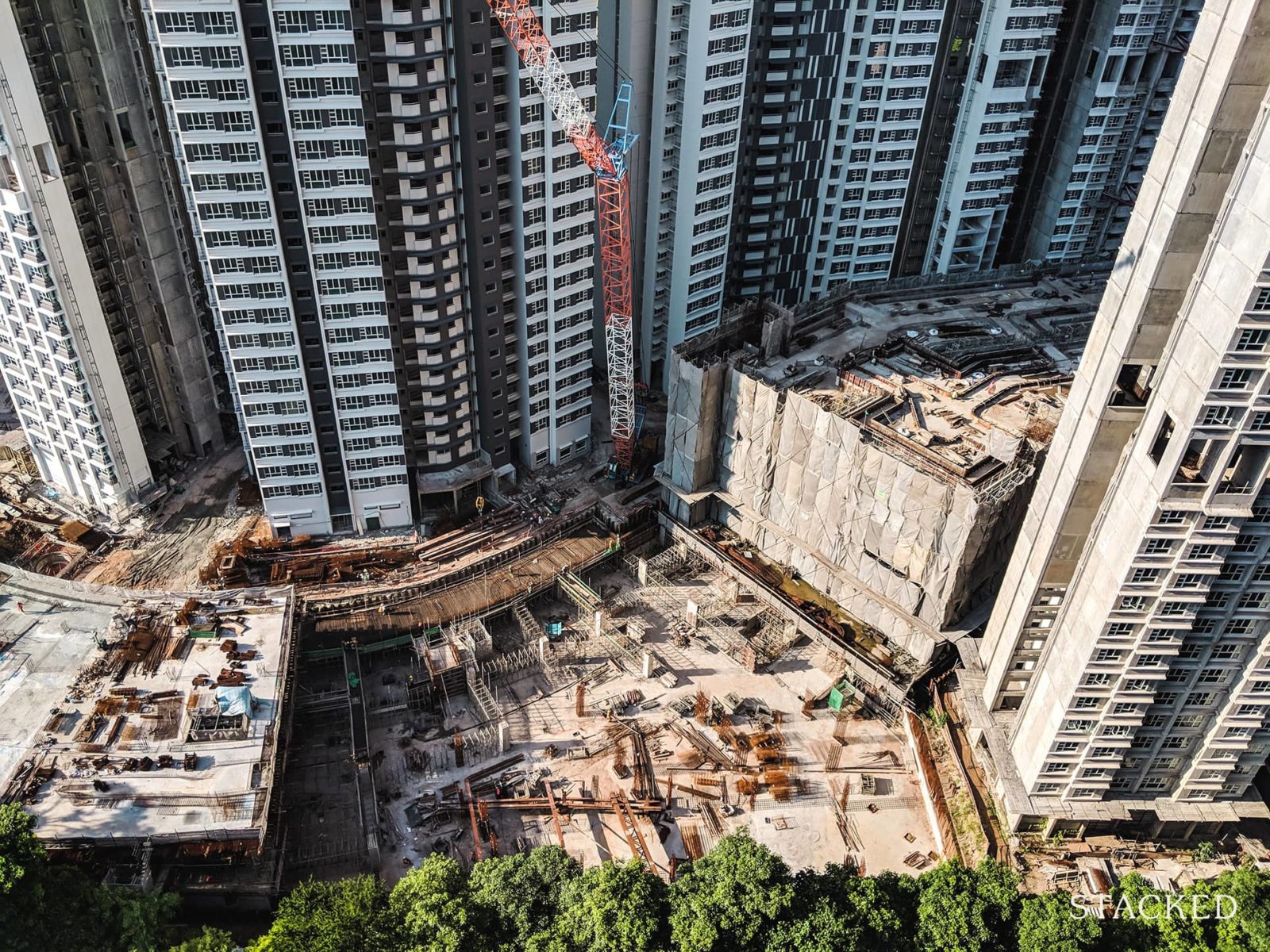
Developers, along with their builders and subcontractors, source materials from a wide range of countries. Understanding the full impact of shifting supply chains and tariffs would require extensive studies. Even now, some are likely scrambling to secure alternative suppliers, with mixed success.
If tariffs raise material costs more than anticipated, this could push up property prices. It may also influence unit layouts and finishing choices, as developers turn to more affordable alternatives to maintain margins.
One executive from a local property developer, who wanted to stay anonymous, warned that many of our wiring systems, light fixtures, valves, and fasteners are sourced from China. These are critical for both residential and commercial construction, impacting MEP (mechanical, electrical, plumbing) costs.
He raised the concern that Chinese manufacturers facing US tariffs may raise prices to recoup their losses, and Singapore’s strict building codes and certifications (like BCA requirements) mean it’s not simple to just switch around for cheaper suppliers.
It’s still early days though, and the current US administration is notoriously volatile
We don’t know if the tariffs are permanent, or if they’re going to end up being negotiating tools: as we’ve seen from the previous Trump administration, what they say isn’t always what comes to pass. It’s still early days, and it’s difficult to know for sure how the property scene is going to be impacted, but we do think it’s time to keep an eye on your home loan rates. This is also a good opportunity to see how our current housing policies, such as eligibility issues and the pricier Plus and Prime HDB flats, are sustainable in rough times.
At Stacked, we like to look beyond the headlines and surface-level numbers, and focus on how things play out in the real world.
If you’d like to discuss how this applies to your own circumstances, you can reach out for a one-to-one consultation here.
And if you simply have a question or want to share a thought, feel free to write to us at stories@stackedhomes.com — we read every message.
Frequently asked questions
How might US tariffs influence Singapore's mortgage interest rates?
Could Singapore property prices increase during global economic crises?
Are Chinese buyers likely to buy more property in Singapore because of tariffs?
What is the general buyer response to potential economic uncertainties caused by tariffs?
How could tariffs impact the cost of construction and property development in Singapore?
Ryan J. Ong
A seasoned content strategist with over 17 years in the real estate and financial journalism sectors, Ryan has built a reputation for transforming complex industry jargon into accessible knowledge. With a track record of writing and editing for leading financial platforms and publications, Ryan's expertise has been recognised across various media outlets. His role as a former content editor for 99.co and a co-host for CNA 938's Open House programme underscores his commitment to providing valuable insights into the property market.Need help with a property decision?
Speak to our team →Read next from Singapore Property News

Singapore Property News Nearly 1,000 New Homes Were Sold Last Month — What Does It Say About the 2026 New Launch Market?

Singapore Property News The Unexpected Side Effect Of Singapore’s Property Cooling Measures

Singapore Property News The Most Expensive Resale Flat Just Sold for $1.7M in Queenstown — Is There No Limit to What Buyers Will Pay?
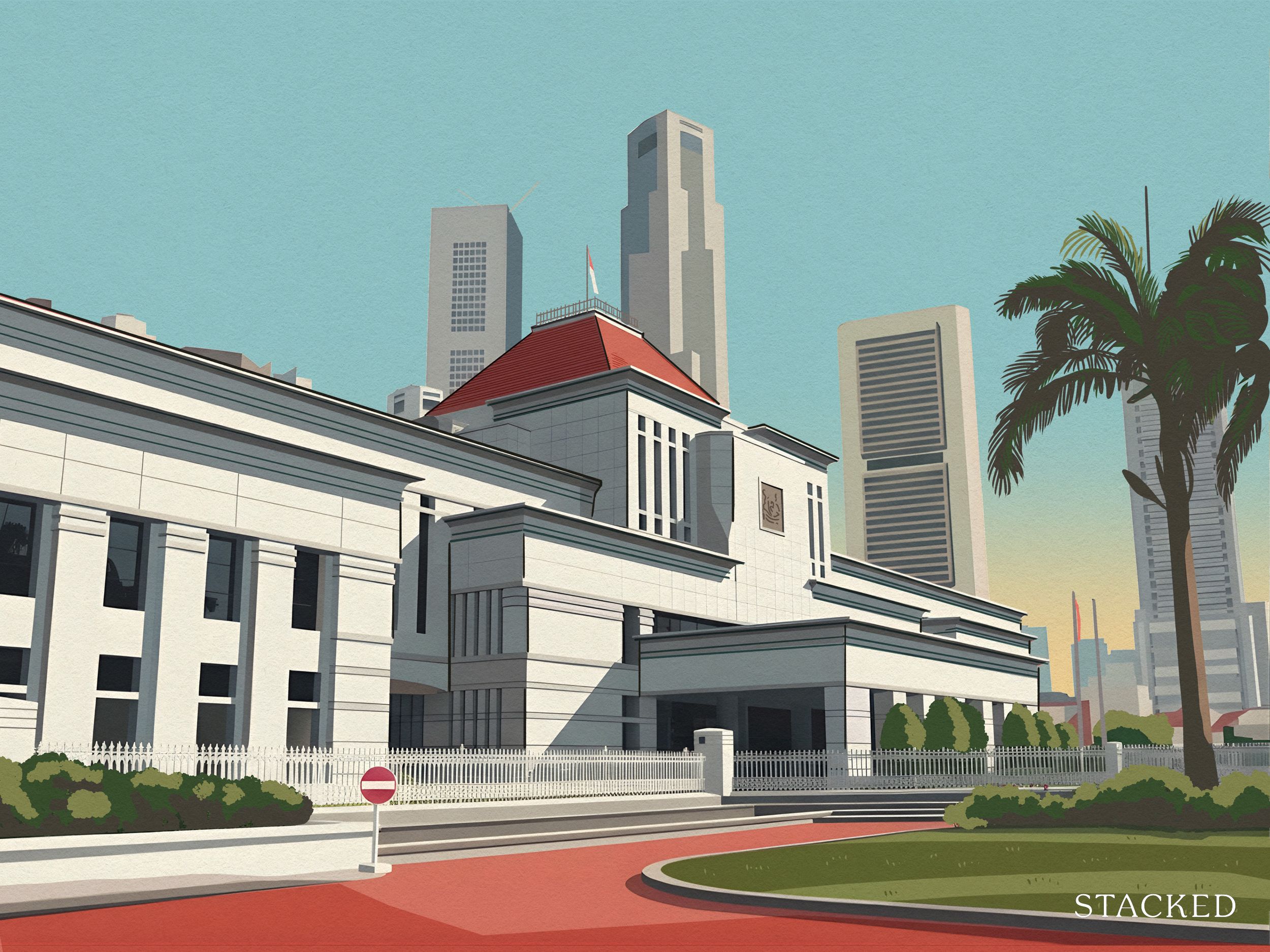
Singapore Property News Why Housing Took A Back Seat In Budget 2026
Latest Posts

Pro River Modern Starts From $1.548M For A Two-Bedder — How Its Pricing Compares In River Valley

New Launch Condo Reviews River Modern Condo Review: A River-facing New Launch with Direct Access to Great World MRT Station

On The Market Here Are The Cheapest 5-Room HDB Flats Near An MRT You Can Still Buy From $550K



































3 Comments
What is the current construction cost for private property example condo….$850 psf? or higher?
What is the current construction cost for private property example condo….$850 psf? or higher?
The title is wrong bro. It should be how tariff will increases and not affects sg property price… So a biased analysis lol